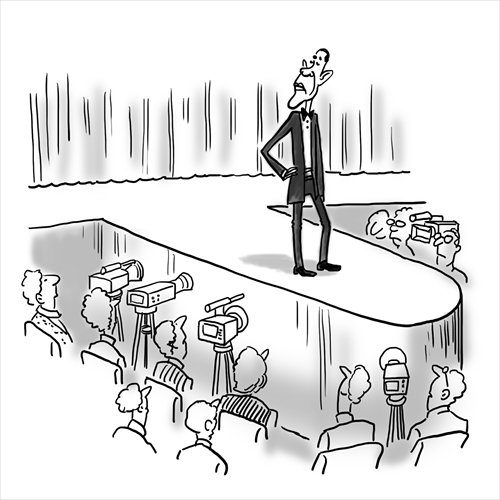Obama tackles diplomatic tangles in Tokyo

Illustration: Liu Rui/GT
US President Barack Obama is scheduled to visit Japan from Wednesday. The circumstances are not optimistic: Tokyo's relations with Beijing and Seoul remain mired in bitter contention, US-Japan relations are still wrapped in suspicion, the Trans-Pacific Partnership (TPP) negotiations are stalled in a deadlock, and the West is mulling over harsher sanctions against Russia over its integration of Crimea.
Can Obama's journey to Tokyo for the first time in nearly three and a half years inject new vigor into the US-Japan alliance, turn the tide of the TPP consultations, acquire the initiative in coping with growing China's influence upon the Pacific Ocean and the thorny issue of the Korean Peninsula, and upgrade its strategy of rebalancing to Asia?
Obama decided to head to Japan out of the consideration of readjusting the US "pivot to Asia" strategy, propelling the talks on TPP, and demonstrating that US has never veered from propping up Tokyo.
Obama arrives with several intentions. To begin with, Washington is seeking stability in Northeast Asia and diplomatic unity among its allies, with the overall purpose of maintaining its existing interests and implementing its military deployment plans in the Asia-Pacific region while adopting a dual policy of both containing and contacting China.
In parallel, Washington aims at consolidating the US-Japan-South Korea military alliance. Given the unexpectedly deteriorating Tokyo-Seoul ties and consequently closer relations between China and South Korea, the US needs to repair the worsening relationship between its two important Asian allies.
Japanese Prime Minister Shinzo Abe met with his South Korean counterpart Park Geun-hye officially for the first time after they stepped in office on the sidelines of the Nuclear Security Summit in The Hague, due to the mediation efforts by Obama. However, this barely helps to relieve the tensions between the two over historical and territorial issues.
Moreover, in light of the geopolitical importance of Northeast Asia, Washington has been longing for more cooperation with Tokyo and Seoul to impose pressure on Pyongyang. But Obama will hardly give full pledges to the Abe ministration in its confrontation against China, owing to Beijing's indispensable role in resolving the intractable North Korea nuclear issue.
Both the US and Japan are also pursuing closer interaction to jointly handle contingencies in the East China Sea and the South China Sea. It is highly likely that Obama and Abe will issue a joint declaration which, in their words, will contribute to Asia-Pacific peace and stability as well as provide maritime security guarantees for ASEAN member states.
They have been dreaming of shaping a greater ASEAN region to echo the South Asian alliance area still in its nascent stage, in a bid to ensure their dominating advantages across the vast sea area connecting Northeast Asia with Southeast Asia and improve their economic stakes in maritime resources.
Another critical concern of the Obama administration is the TPP talks. Several rounds of ministerial-level consultations have ended in vain due to divergences on farm produce and auto tariffs. Obama, who must brace for midterm elections in November, is eager to conclude a substantial TPP deal, which means Japan must make substantial compromises.
In exchange, the US has to offer more security support for Japan in the East China Sea. But there are uncertainties in this regard.
And although Abe's cabinet is considering providing maglev train technology to the US without license fees, it remains to be seen whether Washington has sufficient finance and interests to implement this railroad plan.
Tokyo and Washington have suffered from enlarging estrangement since Abe visited the Yasukuni Shrine in December. And distrust toward the US has seen a groundswell among Japanese politicians. Obama's visit will definitely provide a golden opportunity to appease its most staunch ally in Asia.
Washington and Tokyo are military allies in geological and security strategies, but competitors in TPP negotiations and the exploration for submarine resources in the East China Sea and the South China Seas. Obama's Japan journey is both a strategic decision and a publicity stunt.
The author is director of the Institute of Northeast Asian Studies, Heilongjiang Provincial Academy of Social Sciences. opinion@globaltimes.com.cn